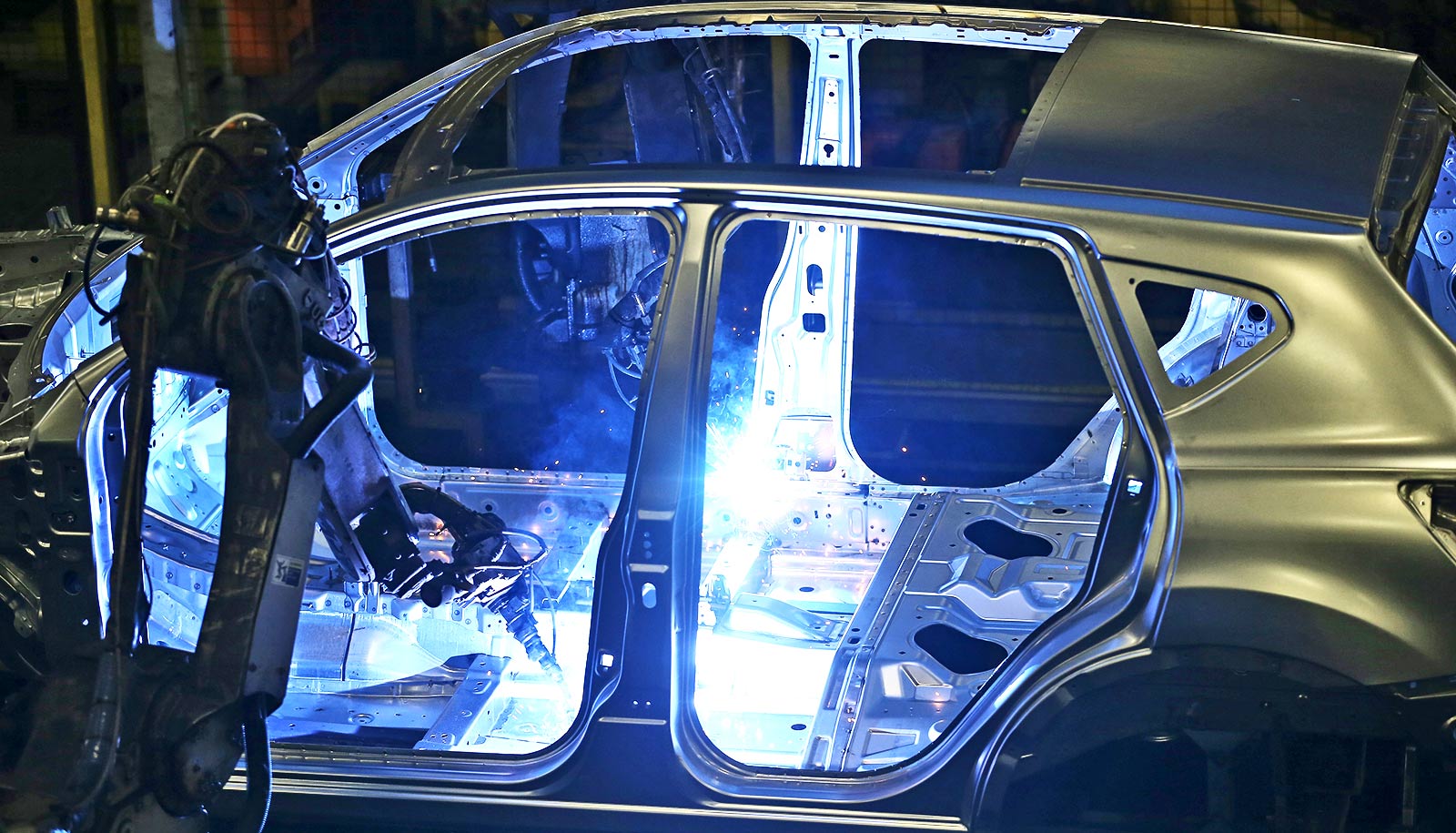
"On one hand, robots could take on some of the most strenuous, physically intensive, and risky tasks reducing [human] workers' risk," Osea Giuntella says. "On the other hand, the competition with robots may increase the pressure on workers who may lose their jobs or be forced to retrain." (Credit: Christopher Furlong/Getty Images )
Robots cut worker injuries but increase drug abuse risk
Americans who have robots as coworkers are more likely to suffer from adverse mental health effects—and are more likely to abuse drugs or alcohol.
Americans who work alongside industrial robots are less likely to be injured on the job, but more likely to suffer from adverse mental health effects—and even more likely to abuse drugs or alcohol, a new study shows.
“There is a wide interest in understanding the labor market effects of robots and how robots affect the employment and wages of workers, particularly in the manufacturing sector,” says Osea Giuntella, assistant professor of economics at the University of Pittsburgh and an expert in labor economics and economic demography. “However, we still know very little about the effects on physical and mental health.”
Using data from the OSHA Data Initiative, the team found injuries were reduced by 1.2 cases per 100 workers when a regional labor market experienced an increase in robot exposure.
Meanwhile, areas with more people working alongside robots had a significant increase in alcohol or drug-related related deaths—37.8 cases per 100,000 people—as well as a slight increase in mental health issues and suicide rates.
“On one hand, robots could take on some of the most strenuous, physically intensive, and risky tasks reducing [human] workers’ risk,” Giuntella says. “On the other hand, the competition with robots may increase the pressure on workers who may lose their jobs or be forced to retrain.”
With the help of Luca Stella from Freie Universität Berlin, the team also investigated whether these trends were unique to the US. According to their analysis, German workers saw a 5% decrease in injuries but no significant mental health changes when exposed to robotics.
“Robot exposure did not cause disruptive job losses in Germany; Germany has a much higher employment protection legislation,” says Rania Gihleb, an assistant professor in the economics department at the University of Pittsburgh. “In contexts where workers were less protected, competition with robots was associated with a rise in mental health problems.”
Giuntella has studied the effects of robotics on the workforce before. A 2021 study published in focused on the effects of robotics on economic stature, marital status, and marital fertility of men.
“There has been an intense debate on the effects of robotics and automation on labor market outcomes, but we still know little about how these structural economic changes are reshaping key life-course choices,” says Giuntella.
The team writes that future studies should examine interactions between humans and robots at the firm or occupation level to further disentangle the complex relationship between automation and well-being.
The study is published in the journal Labour Economics .
Source: Nick France for University of Pittsburgh
The post Robots cut worker injuries but increase drug abuse risk appeared first on Futurity .
Share this article:
This article uses material from the Futurity article, and is licenced under a CC BY-SA 4.0 International License. Images, videos and audio are available under their respective licenses.
Related Articles:
Will the pandemic shore up inequality or bring change?
May 1, 2020 • futurityPaid family leave is good for moms and baby brains
April 19, 2022 • futurityLinks/images:
- https://www.futurity.org/opioid-deaths-automotive-assembly-plants-2244162/
- https://www.futurity.org/robots-replacing-workers-2217712/
- https://doi.org/10.1016/j.labeco.2022.102205
- https://www.pitt.edu/pittwire/features-articles/automation-hurts-human-mental-health-study
- https://www.futurity.org/robots-jobs-substance-abuse-2766262/
- https://www.futurity.org


